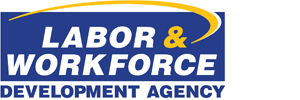California Awards Nearly $40 Million for Communities to Build Industries of the Future
SACRAMENTO – Today, Governor Gavin Newsom announced $39 million in state funding going to economic development projects across the state that support California’s transition to a low-carbon, green growth future. The funds, awarded through the Community Economic Resilience Fund (CERF), support communities with their transition to more sustainable, climate forward industries while strengthening access to good jobs.
What Governor Newsom said: “Our transition to a clean economy must include all Californians – that’s why we’re investing hundreds of millions of dollars into innovative projects across our state that put workers first. We’re leaving no one behind on our path to achieving world-leading climate goals that will slash pollution and supercharge our economy.”
Launched by Governor Newsom in 2021, CERF is a $600 million program catalyzing high-growth, low-carbon industries and high-quality jobs in the transition to a clean energy economy. The program is administered by a cross-agency team that includes the Governor’s Office of Planning and Research (OPR), Governor’s Office of Business and Economic Development (GO-Biz), and the Labor & Workforce Development Agency (LWDA).
As part of CERF’s initial planning phase, 13 economic development entities known as High Road Transition Collaboratives were awarded $5 million each to develop roadmaps, including a strategy and recommended series of investments, for their region. Following the planning phase, the program’s implementation phase will provide $500 million to fund projects identified by the High Road Transition Collaboratives. Today’s awards are an initial part of the implementation process.
CERF Economic Development Pilot Awardees
Alchemist Public Market, awarded $7.8 million, is a place-based infill project in Sacramento’s emerging River District that will build a pipeline for underserved entrepreneurs to start new food businesses, provide workforce development for individuals with high barriers to employment, create an attractive and energetic community gathering place, and offer access to quality food and produce from local producers.
The Walnut-Daisy Urban Farm project, awarded $3.8 million, is a collaboration between three community-based and resident-driven organizations and groups in Santa Ana. The project includes an urban micro-farm for BIPOC farmers, a cooperative cafe and an artisan shop, a community gathering space with outdoor seating and a stage, as well as an office and a marketplace for local produce and value-added items sold by local, BIPOC-owned micro-enterprises, including worker-owned cooperatives.
The Noyo Harbor Revitalization Plan, awarded $3.2 million, will fund the development of a new ice facility and the Entrepreneurial Marine-Based Training Program & Community Fish Market to establish a robust community fish market, foster job creation, skill development and improve job quality and access to capital for commercial fishers in Mendocino County.
The PACE Green Loan Fund (PGLF), awarded $5 million, is a revolving loan fund with loans ranging from $25,000 to $500,000 to provide entrepreneurs with working capital and/or growth with particular focus on providing high-quality jobs, reducing economic inequality and addressing the climate crisis in the Los Angeles region.
Integrating Innovation and the North State’s Working Landscape, awarded $2.1 million, will fund final construction costs to rehabilitate Yreka’s Carnegie Library Building and convert it into a community-driven business and industry innovation hub to support the region’s working landscape sectors, including agriculture, outdoor recreation tourism, and wood sectors, in developing new products, creating high-road jobs, cross-collaborating, and developing climate resiliency practices.
The Bioeconomy, Agriculture, and Manufacturing (BEAM) Initiative, awarded $3.6 million, is a cross-sector collaboration to advance the circular bioeconomy in the North San Joaquin Valley, with a focus on accelerating bio-based innovations and the manufacturing industry cluster that complement the region’s strength in food and agriculture while creating family-sustaining jobs across the region.
High Roads to Good Jobs and Prosperity in the Central Valley, awarded $10 million, will create thousands of quality good jobs in the renewables industry, advance entrepreneurship and access to capital for hundreds of minority business owners through business technical assistance and accelerator programs, and provide coordinated, social safety net, and provide digital infrastructure in priority communities focused on those digitally disinvested and in affordable housing areas.
Latino Workers and Entrepreneurs Resiliency Pathway, awarded $3.4 million, will create a revolving loan fund to support business incubation and entrepreneurship in the homecare and climate industries, as well as provide financial education and individual coaching as foundational steppingstones for underserved communities in San Benito, Santa Cruz, and Monterey counties.
“As part of the Community Economic Resilience Fund, the state is partnering with regions and local leaders to chart a path forward for California’s economy that helps us achieve our climate and equity goals,” said Sam Assefa, Director of the Governor’s Office of Planning and Research. “The awards announced today will help us build industries that leverage our natural resources in sustainably, create good-paying jobs, and catalyze innovation and entrepreneurship in every corner of the state.”
“It’s exciting to see community-based collaboration as a cornerstone of the innovative projects awarded today,” said Dee Dee Myers, Director of the Governor’s Office of Business and Economic Development. “CERF was designed for such collaboration to occur, leading to previously underrepresented communities being part of developing solutions for local economic sustainability and resilience.”
“These projects showcase the power and potential of CERF,” said California Labor Secretary Stewart Knox. “Each region has a unique focus as part of our state’s efforts to build economic resilience in the face of climate change and other disruptions. By fostering a bottom-up approach to economic and workforce planning, we can improve on past efforts and ensure our future is cleaner, greener, and more prosperous for all Californians.”
Details regarding awarded projects can be found here.
###
